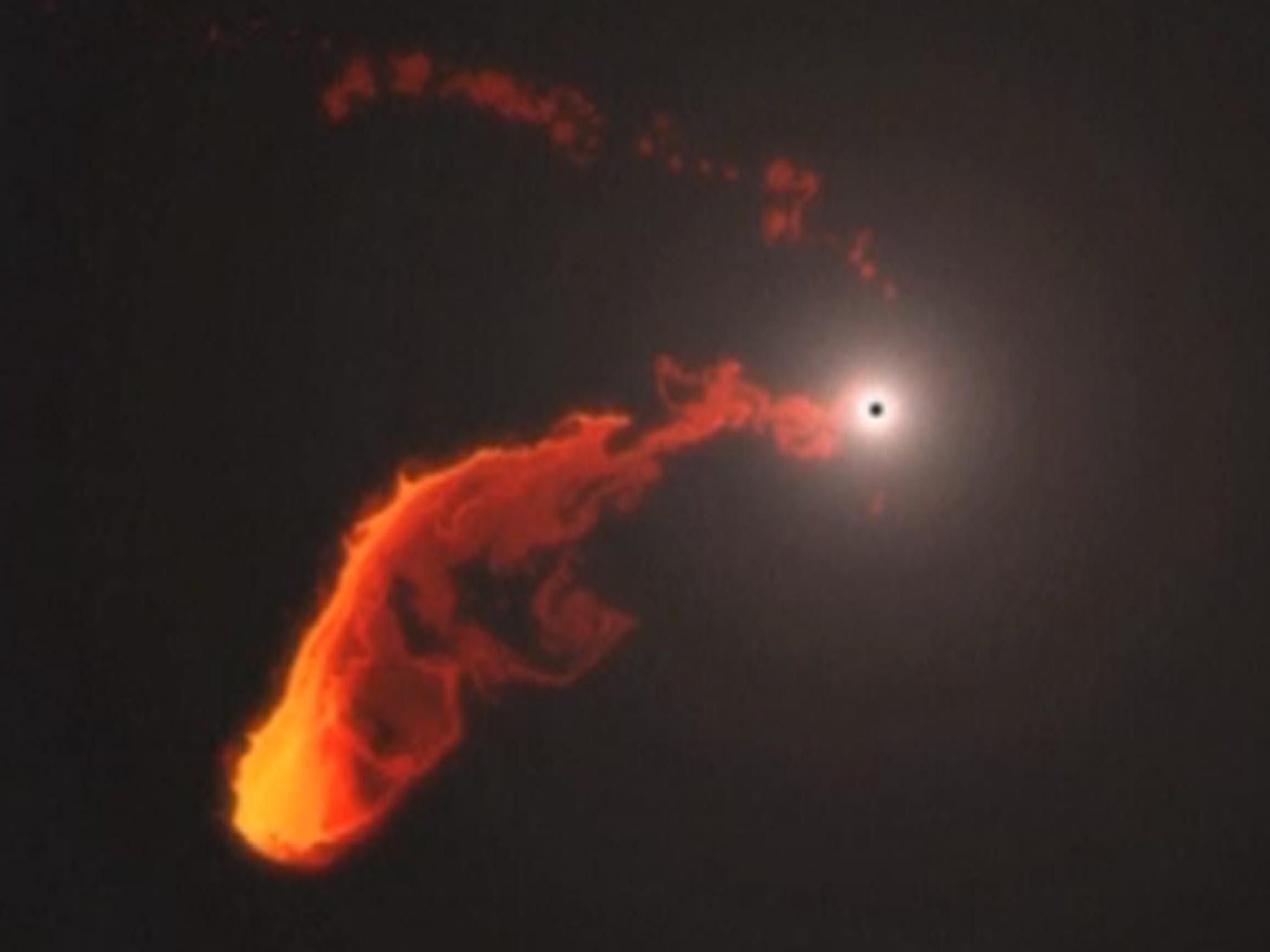Scientists brace themselves for the incredible sight of a black hole swallowing a gas cloud

Your support helps us to tell the story
From reproductive rights to climate change to Big Tech, The Independent is on the ground when the story is developing. Whether it's investigating the financials of Elon Musk's pro-Trump PAC or producing our latest documentary, 'The A Word', which shines a light on the American women fighting for reproductive rights, we know how important it is to parse out the facts from the messaging.
At such a critical moment in US history, we need reporters on the ground. Your donation allows us to keep sending journalists to speak to both sides of the story.
The Independent is trusted by Americans across the entire political spectrum. And unlike many other quality news outlets, we choose not to lock Americans out of our reporting and analysis with paywalls. We believe quality journalism should be available to everyone, paid for by those who can afford it.
Your support makes all the difference.Scientists around the globe are bracing themselves for what could be the best view yet of the black hole ahead of its collision with a gas cloud.
The black hole, called "Sagittarius A*", could provide a stunning series of galactic fireworks if it collides with the gas cloud - which has a mass about three times that of Earth - currently heading in its direction.
First identified by German scientists three years ago, they originally believed the collision would occur last year. However, astronomers have predicted that the collision will now happen sometime in March.
The gas cloud, dubbed "G2", is expected to travel so close to the black hole that it will cause it to heat up and create a chain of sensational bright lights.
Many scientists are eagerly anticipating the event due to the educational value of the experience, with information about the gravitational effects of the hole and the extent of its power likely to be revealed.
Sagittarius A* is one of the dimmest black holes of the supermassive variety - which are much less visible than other black holes - so the event could provide the opportunity for a better viewing for scientists in the future.
Jon Miller, an associate professor of astronomy at the University of Michigan, said: "I would be delighted if Sagittarius A* suddenly became 10,000 times brighter. However, it is possible that it will not react much - like a horse that won't drink when led to water."
He added: "If Sagittarius A* consumes some of G2, we can learn about black holes accreting at low levels - sneaking midnight snacks. It is potentially a unique window into how most black holes in the present-day universe accrete."
To give interested viewers a taste of what they can expect, astronomers have created a simulation of the events which they predict will happen in the spring.
Join our commenting forum
Join thought-provoking conversations, follow other Independent readers and see their replies
Comments